Last week, Robert Nolen, Clinical Research Manager at Qbtech, presented findings from a breakthrough study at APSARD alongside Phil Anderton, former CEO…
Blog
Blog
Why high-performing ADHD clinics prioritize consistency in care
In ADHD care, where presentations vary, pathways can be complex, and demand continues to rise, consistency stands out…
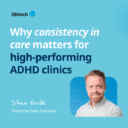
How to build a future-ready ADHD clinic in 2026 and beyond
This year, mental health practices will continue to face high demand for evaluations. In the US, ADHD and Autism clinics market is expected to reach $115.55…
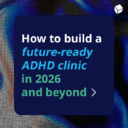
Is your ADHD clinic 2026-ready? Shaping the future of ADHD care
The ADHD patients of 2026 are knowledgeable, not just about the condition, but also how it’s assessed and…
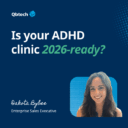
Objective ADHD testing in eating disorder services: A proven approach to patient care in the NHS
Eating disorders (EDs) and ADHD often co-occur, and patients can present with overlapping symptoms. Impulsivity, binge eating, and attentional difficulties are common…
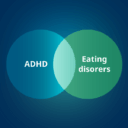
Objective assessment of attention deficit hyperactivity disorder with QbMobile: A smartphone application for clinical use (2025)
Clinical Practice & Epidemiology in Mental Health (Gustafsson, U., Larsson, S., Casals, N., Nolen, R., Sanyal, R. Y.,…

The ADHD clinic of tomorrow: What are key trends in ADHD care in 2026?
ADHD care is rapidly evolving. As 2026 approaches, we take a look at the top 5 trends shaping…
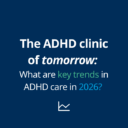
ADHD in Complex Cases: Clinician Guide & FAQs
People with ADHD may develop coping or masking strategies to manage their symptoms, especially if they are undiagnosed for a long time….

Qbtech responds to the ADHD Taskforce final report
By Tony Doyle, Managing Director, Qbtech Ltd The publication of the final report by the Independent ADHD Taskforce marks a pivotal moment…

QbCheck in practice: A clinician guide to using objective data in ADHD evaluations
Objective data plays an increasingly important role in today’s world of high-quality ADHD care. We know its importance, but how can…

